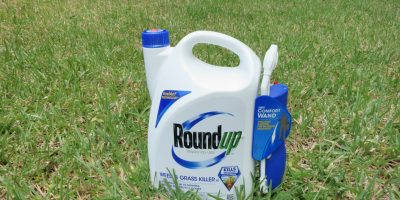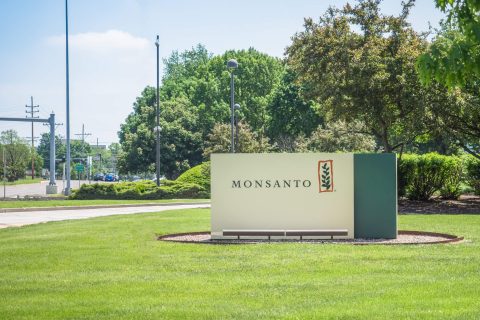Roundup Settlement
According to legal experts, the average Roundup settlement payout could be around $150,000 per plaintiff. Bayer agreed to pay nearly $11 billion to settle Roundup safety claims, but over 40,000 active lawsuits remain in litigation. Lawsuits claim that using Roundup, a popular herbicide containing glyphosate, caused plaintiffs’ non-Hodgkin lymphoma and other cancers.
Our content is developed and backed by respected legal, medical and scientific experts. More than 30 contributors, including product liability attorneys and board-certified physicians, have reviewed our website to ensure it’s medically sound and legally accurate.
legal help when you need it most.
Drugwatch has provided people injured by harmful drugs and devices with reliable answers and experienced legal help since 2009. Brought to you by Wilson & Peterson LLP, we've pursued justice for more than 20,000 families and secured $324 million in settlements and verdicts against negligent manufacturers.
More than 30 contributors, including mass tort attorneys and board-certified doctors, have reviewed our website and added their unique perspectives to ensure you get the most updated and highest quality information.
Drugwatch.com is AACI-certified as a trusted medical content website and is produced by lawyers, a patient advocate and award-winning journalists whose affiliations include the American Bar Association and the American Medical Writers Association.
About Drugwatch.com
- 15+ Years of Advocacy
- $324 Million Recovered for Clients
- 20,000 Families Helped
- A+ BBB Rating
- 4.9 Stars from Google Reviews
Testimonials
I found Drugwatch to be very helpful with finding the right lawyers. We had the opportunity to share our story as well, so that more people can be aware of NEC. We are forever grateful for them.
- Reviewed by Cassandra L. Sundblad, Esquire
- Last update: December 2, 2025
- Est. Read Time: 5 min read
- MDL 2741:
- A Roundup multidistrict litigation is underway in the U.S. District Court for the Northern District of California, with District Judge Vince Chhabria presiding.
- State Court Lawsuits:
- While there are an estimated 60,000 Roundup lawsuits in various jurisdictions, about 30,000 have been filed in Cole County, Missouri, since 2022. Many of these are out-of-state lawsuits filed there because Monsanto's registered point of contact is in Jefferson City, the county seat.
- Pending Cases:
- There were 4,508 Roundup lawsuits pending in MDL 2741 as of December 2025.
What Is the Average Roundup Settlement Amount?
Roundup settlement payouts are estimated to range from $5,000 to $250,000. Legal experts say that the average payout is $150,000 per plaintiff. Factors that impact the amount you may be paid include duration of Roundup exposure, the strength of your claim and your general health or age. These are projections that will vary depending on each individual case.
“Many lawsuits have resulted in substantial settlements, highlighting the seriousness of the issue and the responsibility of companies producing glyphosate-based products,” product liability attorney Jonathan Rosenfeld told Drugwatch.
Factors Affecting Roundup Settlement Amounts
The seriousness of the injuries and the damages a person claims each affect the amount of a person’s Roundup settlement.
- Amount of monetary and emotional damages
- Duration and strength of Roundup exposure
- Plaintiff’s general health and age
- Proof that Bayer was negligent
- Strength of the evidence in a plaintiff’s claim
Claims administrators use a settlement matrix to determine individual settlement amounts. The matrix assigns a point value to each claim based on factors like the seriousness of the injury and the age of the person. Claims with higher point values receive higher settlement amounts.
The Roundup Settlement Process
During the 2020 Roundup settlement process, Bayer offered a settlement after losing several trials totaling more than $2 billion in damages. After both sides negotiated a settlement, Judge Chhabria signed off on it and established a settlement fund. He appointed Special Master Kenneth Feinberg to determine payout amounts for Roundup plaintiffs.
- Plaintiffs provide the Special Master with the requested supporting documentation.
- Bayer provides its own documentation regarding the plaintiff's claim.
- The Special Master weighs the documentation and analyzes the claim.
- The Special Master issues a written offer of settlement to the plaintiff.
- Plaintiffs may accept or reject the offer.
- Bayer is required to pay the settlement once the plaintiff agrees.
Remember, these specific steps only applied to those affected by the 2020 settlement and future settlements may vary.
Individual vs. Program/Batched Settlements
Multidistrict litigation (MDL) and individual lawsuits both seek to help people who have been harmed, but they do it in different ways. In an MDL, many similar cases are brought together before one federal judge. This helps to manage the process more efficiently, as it combines efforts like gathering evidence and can lead to settlements that consider the types of injuries people have.
On the other hand, individual lawsuits are handled in state courts and are processed separately. They can be settled through direct discussions between the parties or taken to trial.
- MDL Timeline:
- Filing Your Lawsuit → Case Consolidation → Discovery (both sides exchange information & gather evidence) → Bellwether Trials (test trials) → Settlement Negotiations → Claim Review (claims by insurers, legal fees) → Judge’s Approval → Payment
- Individual Lawsuit Timeline:
- Filing Your Lawsuit → Discovery → Settlement Negotiations or Trial → Payment
MDLs can take longer to set up — sometimes several years — because they involve coordinating many cases and conducting special trials to guide decisions for everyone. However, they offer the benefit of ensuring consistent outcomes for the people affected. Individual lawsuits can be resolved more quickly, usually within one to three years, but they don’t have the same advantages of working as a group.
Do You Qualify for a Roundup Settlement?
People who used Roundup for at least 120 hours and two years before being diagnosed with non-Hodgkin lymphoma or any other qualifying disease may qualify for a settlement. Contact a Roundup lawyer to confirm your eligibility.
- You used Roundup for a long period of time.
- You were exposed to large amounts of Roundup at age12 or younger.
- A doctor diagnosed you with non-Hodgkin lymphoma or another qualifying cancer on June 1, 2018, or after.
- Your claim is filed within the statute of limitations.
Roundup lawsuits are time-sensitive and only apply to Roundup claims, not alternatives like paraquat or other glyphosate-based herbicides. Contact a Roundup lawyer ASAP to secure your right to file a claim.
Documents and Evidence To Gather for Filing a Roundup Lawsuit
- Property records
- Purchase orders or invoices
- Work records
- Medical bills
- Medical diagnosis of non-Hodgkin lymphoma or related cancers
- Records of medical treatments and tests related to your diagnosis
- Health insurance records
- Medical bills
- Pay stubs
Expert and Patient Perspectives
Has There Been a Roundup Settlement?
As of December 2025, 4,508 cases remain pending in the MDL in the Northern District of California. There has been no settlement so far in these remaining cases, and trials are continuing.
In 2020, Bayer offered $10.9 billion to settle 100,000 lawsuits claiming Roundup weed killer increased cancer risks. As of May 2025, Bayer is reportedly once again looking to resolve cases via a settlement. This new settlement may impact the thousands of cases pending in Missouri state court.
In 2021, a federal judge rejected Bayer’s $2 billion proposal to settle future cancer claims related to Roundup. The plan would have created a scientific panel to decide if Roundup causes cancer, limiting victims’ rights to sue for full compensation. The judge deemed it “unreasonable,” as it would have forced potential future victims to accept smaller payouts and give up jury trials.
As a result, there’s no national program for future cases, meaning anyone later diagnosed with non-Hodgkin lymphoma from Roundup will need to file individual lawsuits. This decision protects victims’ rights, but also means lengthy legal battles ahead.
In 2023, Bayer settled with the New York Attorney General to pay $6.9 million for misleading consumers about Roundup’s safety. The state planned to use the money to reduce the effect of pesticides on pollinators and aquatic species.
Roundup Verdicts
In March 2025, a Georgia jury awarded nearly $2.1 billion to a man who developed non-Hodgkin lymphoma after years of Roundup usage.
In October 2024, a Philadelphia jury delivered a $78 million verdict to a Roundup lawsuit plaintiff.
In January 2024, a Pennsylvania man won the largest single Roundup verdict of $2.25 billion. In that case, the jury found that Roundup caused his cancer. John McKivison claimed he developed non-Hodgkin lymphoma after using Roundup for 20 years on his property.
After plaintiffs won three California lawsuits with jury verdicts totaling more than $2.4 billion, Bayer won a string of eight Roundup lawsuit trials in Missouri and California courts. The plaintiffs then won six of the next seven cases.
Bayer has paid $11 billion to resolve 100,000 Roundup lawsuits so far. About 61,000 of those cases are still active. Around 4,508 are in the federal MDL, but the bulk of pending Roundup lawsuits remain in state courts.
| DATE | VENUE | RESULT | APPEAL STATUS |
|---|---|---|---|
| October 2025 | Missouri Supreme Court | The court declined Bayer’s appeal of a $611 million verdict against the company. | Bayer has promised an appeal. |
| September 2025 | Illinois First District Appellate Court | The court upheld a jury verdict in favor of Monsanto/Bayer. | Verdict upheld, no appeal. |
| June 2025 | U.S. Supreme Court | The Supreme Court asked for an opinion from the U.S. Solicitor General before deciding whether to grant Bayer’s request to appeal a Roundup case. | Awaiting a ruling on whether the U.S. Supreme Court will take up an immediate appeal. |
| June 2025 | Missouri State Trial Court in St. Louis | Bayer confidentially settled the lawsuit during the trial. | Lawsuit settled, no appeal. |
| May 2025 | Western District Missouri Court of Appeals | The court upheld a $611 million judgment against Bayer. | Bayer appealed to the Missouri Supreme Court, which declined to hear the appeal. |
| May 2025 | Superior Court of Pennsylvania | The court upheld a $175 million verdict against cancer. | Bayer planned to appeal the decision. |
| April 2025 | U.S. Supreme Court | Bayer petitioned for a writ of certiorari. This is a request to appeal Durnell v. Monsanto directly to the Supreme Court. | Awaiting a Supreme Court decision allowing an immediate appeal to the high court. |
| March 2025 | State Court in Cobb County, Georgia | The jury awarded $2.065 billion to John Barnes, including $65 million in actual damages and $2 billion in punitive damages. | Bayer promises to appeal. |
Frequently Asked Questions
Calling this number connects you with a Drugwatch.com representative. We will direct you to one of our trusted legal partners for a free case review.
Drugwatch.com's trusted legal partners support the organization's mission to keep people safe from dangerous drugs and medical devices. For more information, visit our partners page.









